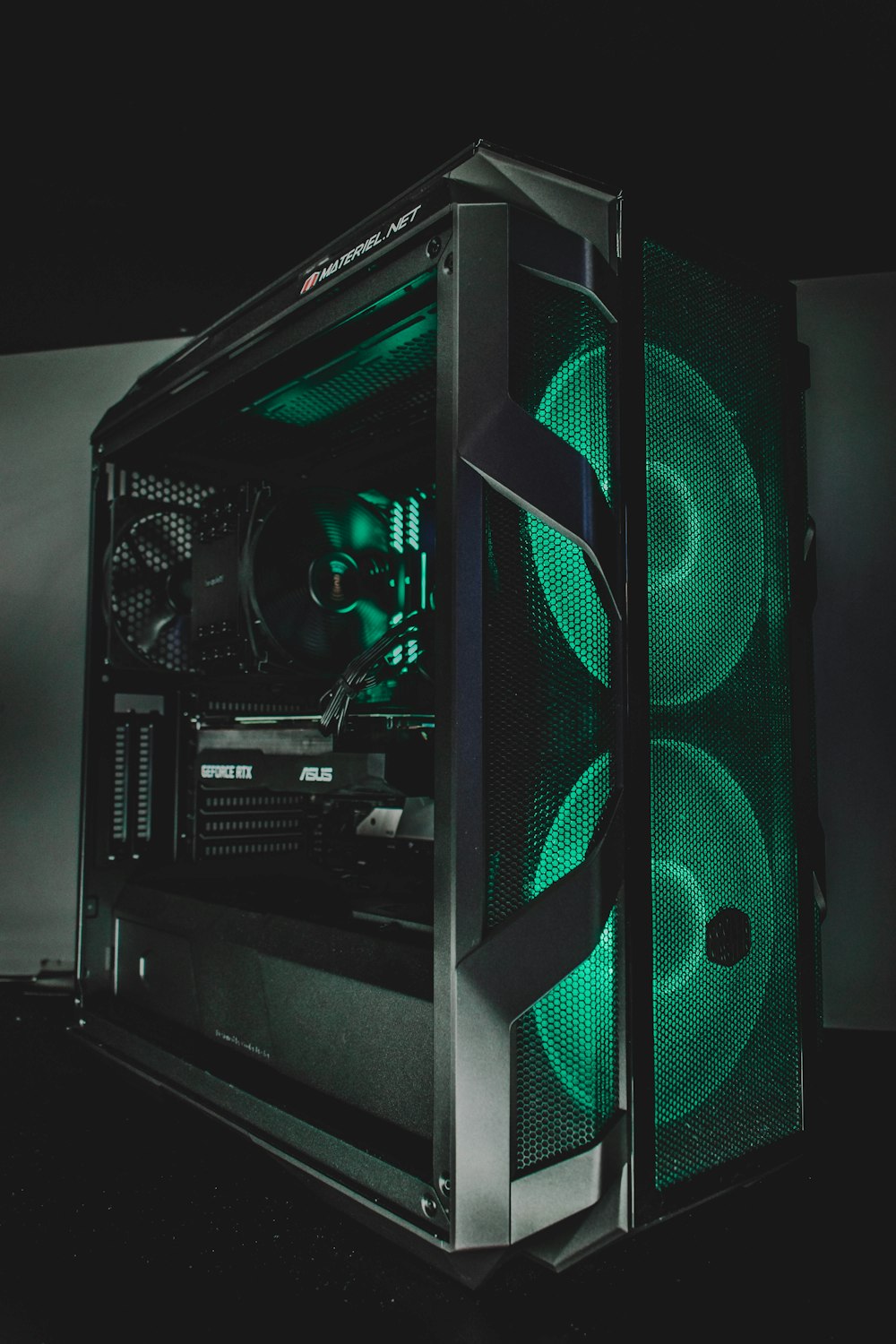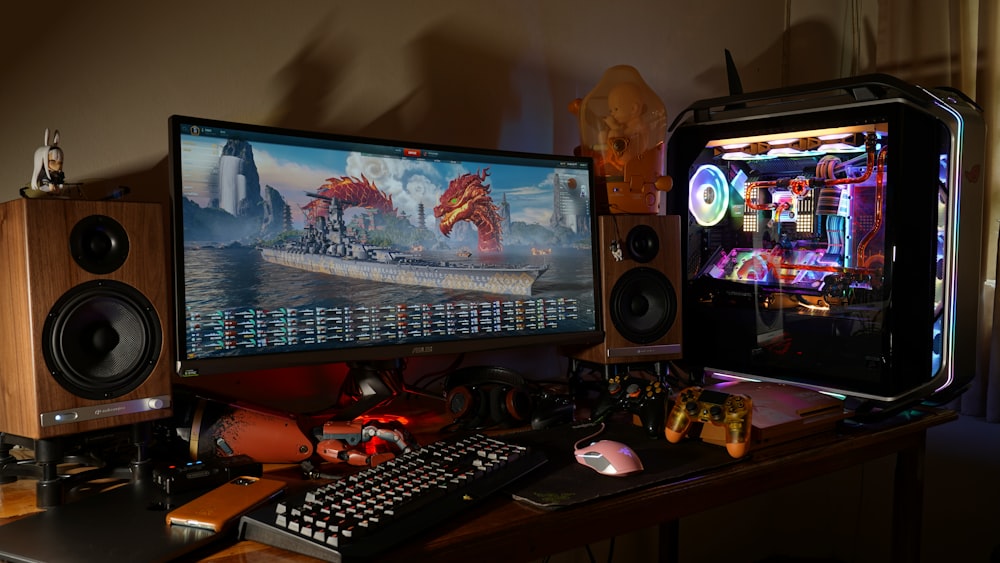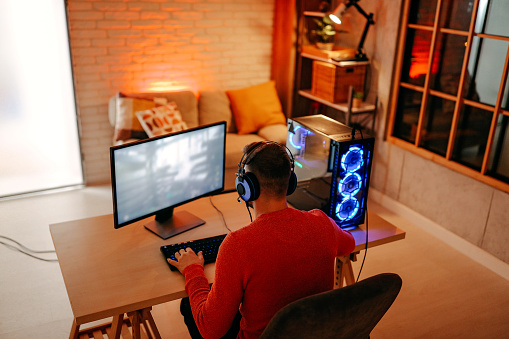Gaming PCs are among the most advanced computers you own, so it’s only natural that they’ll need constant care and maintenance. How old is Your Gaming PC? Here’s how to tell
In a more technical way, gaming PCs will take close to a decade to deteriorate and will become outdated way before they break.However, the great thing about PC gaming is you don’t need to throw your old system
If you’re anything like us, you probably check your PC every day before you play a game or watch a movie. And for good reason, too! Gaming PCs are powerful machines that need regular care to ensure that they’re in peak working condition.
Even so, you might not be sure of how old your gaming PC is. In this article, we’ll give you a few guidelines to help you tell if your gaming PC is in good shape or if you should spring for a new one.
Check your PC’s Age By the time you get your gaming PC, you may have already played a few games on it. And by the time you finish reading this article, you’ll know exactly how old your gaming PC is.

Related Article: How Long Should a Gaming PC Last?
Every PC is different, so how do you figure out how old your PC is?
No matter what type of PC you have, it will age over time. One of the most common ways to tell how old your gaming PC is by checking the information on your motherboard.
By pressing the “del” key at startup, you can see a series of numbers in white text on a black background. These numbers represent key things about your computer, including system type and make (100% Dell, for example) and CPU speed.
You’ll also find other valuable information such as how much RAM you have and how much hard drive space you have.
How to tell if your PC is too old to play games
In order to get the best performance out of your gaming PC, it’s important that you know how old your PC is. If you’re not sure, there are a few ways to tell.
How old is Your Gaming PC? Here’s how to tell
PCs have a date code on their BIOS. This date code can typically be found in the computer’s splash screen, or during post-boot setup (where the computer says “Press any key to boot from CD”).
It should look like this: “LN1310CS0614.” Use this information to find your PC’s age.
How to tell if your PC is in good shape to game
PCs are generally built with a three-year lifespan in mind. You should check your PC every six months to make sure it’s still in good working order. The best way to tell if your PC is in good shape is by running a quick diagnostic scan.
Also, you can use benchmarking software like Passmark or Geekbench to find out how well your gaming PC stacks up against competitors.
If you’re having trouble with a game, try lowering its settings or upgrading your graphics card.
If you’re still having issues after trying those options, consider buying a new GPU and getting an extended warranty on your gaming PC.
How old is too old to game?
A gaming PC is an investment and, like any other computer, it has a shelf life. If your gaming PC is more than five years old, you should start looking for a replacement.
While the real reasons PCs die vary from person to person, the bottom line is that they do eventually die.
That said, by five years of use the hardware inside your PC will be showing its age. A newer computer might have better graphics, more storage space and be able to run newer games with ease.
A high-end gaming PC from 2010 (or 2006) may have been great back then but today it’s just not good enough for today’s games on high settings.
In this case, you’ll want to upgrade before you’re left behind in terms of horsepower and graphics.

When should you replace your PC?
When should you replace your PC? That’s a tough question to answer, but if you want to know the specific age of your PC, there are a few signs that tell you when it may be time to get a new one.
When running multiple programs, windows may start to feel laggy. – You’ll notice screen tearing more often than not. – Games will start to crash or freeze.
Your computer will completely shut down without warning (or let’s say, it has been crashing or restarting with no warning).
You’ll be experiencing frequent blue screens or system crashes.
The battery life on your laptop is shorter than usual and takes longer for it to charge.
How old is your PC? And what is it’s expected life?
There is nohard and fast rule to determine how old a gaming PC is, but the life expectancy of your system depends on its age. Every PC will have a different life expectancy depending on how it’s used.
Newer PCs are more durable and can last for several years. However, if you’ve had your current gaming PC for over 5 years, it may be time to think about upgrading.
In this case, you should consider purchasing a new PC or trading in your old one for credit towards a new one.
If you only use your gaming PC occasionally, then you may be able to extend its life by performing maintenance tasks like defragmenting or updating the BIOS.
How old is your PC and how old is too old?
The age of your gaming PC can vary, depending on the model and make. That said, there are some general guidelines you can follow to tell if your PC is in good shape or if it’s time for a new one.
A gaming PC that’s 5 years old is still pretty young, but it would be wise to start planning for a new one when they reach 8-10 years old. A 10 year old gaming PC may not be able to run the latest games with decent graphics or speed.
We recommend getting a new one when your PC hits 12 years old. As PCs get older, they tend to slow down and have more problems running newer games without crashing.
At 12+ years, you should start considering getting a newer PC. It’s also worth noting that some PCs may not last as long as others because of their age or make and model.
By the time you read this article, you will know how old your gaming pc is and whether or not it’s still in good condition.
Can a PC last 10 years?
Generally, a PC should last at least 5 years. However, if you are playing demanding games or running resource-intensive programs, then you may consider getting a new PC.
If you’re unsure, then consult the following guidelines to see how your computer stacks up:
1. Check Your Computer’s Age
The best way to tell is by counting the number of years since your computer came out and adding one additional year for every major update, like Windows 10.
For instance, if your computer was released in 2014 and it has never been updated or replaced with a newer version, then you can assume that it is roughly five years old (plus one).
Just remember that major updates often come with their own problems so be careful when making this assumption about your PC’s age.
2. How Old Is Your CPU?
You can also look at how old your CPU is. If it was made before 2008, then chances are that your CPU is at least eight years old – which means it might be time for an upgrade!
Even worse, if it’s from 2006-2007, then that would make the CPU over 11 years old and most likely past its life expectancy. Now is a good time to invest in a new gaming PC!
3. Look at Your Case
If you have a case that looks like it’s been through a warzone or has had plenty of scratches and dents on its surface, then there’s probably something wrong with your system–or at least

When should I replace my gaming PC?
The short answer to the question of when you should buy a new gaming PC is, “When it’s time!” There are a few signs that indicate that your gaming PC might be at the end of its life.
When it starts to slow down and lag during gameplay:
If your PC starts to slow down when you’re playing games or watching movies, it’s a sign that your PC needs some TLC. It’s possible that your hard drive needs an upgrade or that you need an entirely new one.
If the problem persists, consider checking for frayed cables or broken parts. If these issues don’t solve the issue, then it might be time to get a new computer.
When you notice a change in graphics quality:
If you go back to play one of your favorite games on your gaming PC and notice a change in graphics quality, then this could be another sign that there are problems with your hardware or software.
This can also happen if you go from running Windows 10 to Windows 7 or Windows 8. Once again, this could mean there’s something wrong with your hard drive or other parts of your computer.
You may want to take it in for repair or try reinstalling the operating system just in case those are the problem.
How long does a built PC last?
Since you’ve been using your gaming PC for a while, you have a good idea of how long it lasts.
A gaming PC will last anywhere between 2 years and 10 years, depending on how often you use it and what kind of care it gets.
However, the average lifespan of a gaming PC is around 3 to 5 years.
If your gaming PC is getting old and slow, or if you’re over the age of 18, it may be time to update or upgrade your system.
How often do you buy a new gaming PC?
You might think it’s time to buy a new gaming PC if you buy one every few months. However, that’s not the case. A new computer is usually just what you need once a year or less if you have an effective maintenance routine for your PC.
If you have an effective routine for your gaming PC, then there’s no need to worry about getting a new one every few months.
As long as you keep your computer up-to-date with crucial software and hardware updates, it should run without any issues for years at a time.
What can I do with an old gaming PC?
If you find that your gaming PC is getting on in years, there are some things you can do to get it back up and running.
A- You might want to update your graphics card. Graphics cards are what helps power your games with the latest technology, so it’s a good idea to replace them every few years or so to make sure they’re running at peak efficiency.
B- You may need to upgrade your motherboard. Your motherboard is integral to all of the parts of your computer and its lifespan varies depending on how much use it gets.
If you notice that your computer starts crashing or freezing often, it could be time for an upgrade.
C- You may also want to consider upgrading other components as well, like RAM or storage space. Doing these upgrades will help ensure that your PC has everything it needs for optimal performance and longevity.
How to tell if your PC is due for an upgrade
There are a few ways you can tell if your PC is due for an upgrade. One way is to check the age of all of your hardware, including the CPU, GPU, RAM, and hard drive.
If any of these components is more than three years old, it’s possible that they may not be able to run newer games as well as they used to.
The second way to tell if your PC might need upgrading is by checking the age of your Operating System. Your OS should be updated about every five years (if not sooner).
This ensures that you’re running on the most up-to-date version with all of the latest security patches and updates from Microsoft. Upgrading your OS will help make sure that you have the best experience when playing games and watching movies on your PC.
How many years will a gaming PC last?
The lifespan of a gaming PC can vary depending on its hardware and what it’s used for. If the computer is used solely for gaming, then the PC’s lifespan will be shorter.
However, if the computer is used for both gaming and other purposes, like design or video editing, then it will last much longer than it would if it was just being used for gaming.
Regardless of how it’s used, a PC’s life span can range anywhere from three-five years before you need to buy a new one. If you are using your gaming PC primarily for games, its lifespan might be shorter than five years.
If you’re interested in where to buy a new gaming PC, we recommend checking out iBuyPowerPC.com!

How Long Have You Managed to Make a Gaming PC Last?
No two gaming PCs are alike. Sure, you can make some generalizations about the age of your gaming PC based on its specs, but it could be a few years younger or older than that.
Instead of trying to guess how old your gaming PC is, there are a few ways you can tell for sure.
The first way to find out the age of your gaming PC is to check its specifications listed in the system information tab:
Processor: The processor is the most important part of your PC and will have the highest performance impact on games. A 2-year-old PC with an Intel Core i7-6700K (released in 2016) will have better performance than a 4-year-old PC with an Intel Core i5-2400 (released in 2011).
Motherboard: Your motherboard is what connects all of your components together. You should upgrade this component if it’s more than 3 years old.
If you’re using a high performing CPU from 2013, then you’ll need a motherboard from around that time as well because they don’t work well together.
FAQs
What are some common symptoms that my gaming PC is aging?
The first thing you should do if you think your gaming PC might be old is to check for any of the following symptoms:
* Your PC takes a long time to boot up.
* Your PC often freezes or shuts down unexpectedly.
* You notice a significant change in performance from your games and movies.
* Your gameplay becomes choppy, even on low settings.
* You get an “out of memory” message when playing games.
What’s the diference between “gaming” and “gaming lapto
A gaming PC usually has a video card, whereas a gaming laptop only has an integrated video card.
How do I know when my PC is old?
You’ll want to check for signs of age or wear and tear. If you’re feeling brave, take a look at your computer’s fans and see if they’re dusty or dirty. This can be an indication that your machine needs a good cleaning. Another thing you might notice is that the computer won’t start up as quickly as it used to. When computers get old, they slow down and may need more time to boot up.
What are the benefits of buying a new gaming PC?
If it’s been more than five years since you bought your current gaming rig, chances are it’s slowing down and becoming less reliable. The newest PCs have a lot of value-added features like high-end graphics cards and processors that help them run more efficiently and effectively. And not to mention, newer models tend to have better support for new games!
Conclusion
High-quality games demand a high-end PC to play them. So how do you know if your current computer can handle these games?
Check if your PC has been built in the last five years. If it has, you’ll probably be good for a few more years of gaming. If your PC is more than five years old, it might be time to consider upgrading to a newer model.
There are many factors that come into play—some of which are more important than others. But if you have a PC that’s older than five years, then you’re probably due for a replacement.
And if you’re wondering how long a good gaming PC will last, the answer is: it depends. Some gamers have managed to make their gaming PCs last for six or seven years, but it can vary depending on how demanding the games are and how often the gaming PC is used.
